PREVIOUS
The Election commission of India and Elections History - Part 10
May 23 , 2024
331 days
2372
0
(இதன் தமிழ் வடிவத்திற்கு இங்கே சொடுக்கவும்)
15th Lok Sabha 2009-2014
- Winning party: Indian National Congress led United Progressive Alliance (UPA)
- Prime Minister: Manmohan Singh
- Term: May 22, 2009 - May 26, 2014
- Leader of the Opposition: Sushma Swaraj of Bharatiya Janata Party
- Speaker: Meira Kumar
- Term in Lok Sabha: June 3, 2009 - June 4, 2014
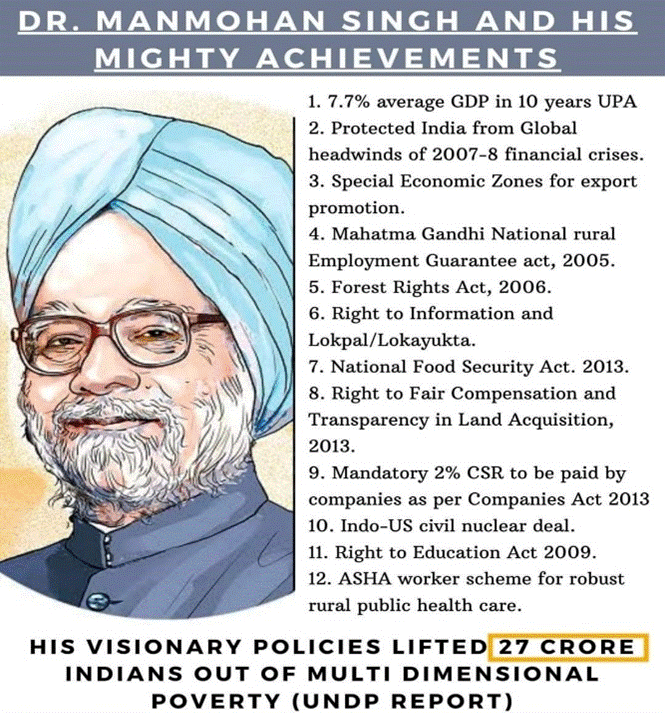
Overview:
Congress’s Resurgence and Challenges:
- The United Progressive Alliance (UPA) returned to power with a stronger mandate.
- Manmohan Singh became the first PM since Indira Gandhi to serve two full terms.
- The Samajwadi Party emerged as the single largest party in Uttar Pradesh.
- The Telangana movement reached a crest with the passing of the Andhra Pradesh Reorganisation Act.
- However, the tenure faced challenges like significant growth slowdown, poor delivery of welfare schemes, and corruption scandals.
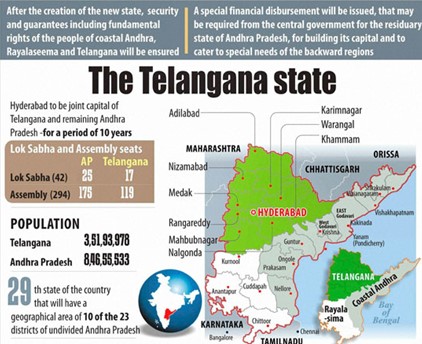
Key Political Figures:
- Sushma Swaraj, a BJP stalwart, served as the Leader of the Opposition.
- Meira Kumar, daughter of freedom fighter Jagjivan Ram, became the first woman Speaker of Lok Sabha.
Parliamentary Disruptions and Issues:
- Productivity was low, with only 61% of productivity, the worst in over 50 years.
- Feuds over various issues like the 2G spectrum scam, coal blocks, FDI in retail, Commonwealth Games, and Adarsh housing.
- Allegations against Narendra Modi and Nitin Gadkari were discussed.
- Lack of effective leadership, inability to control prices, and corruption charges affected voter sentiment.
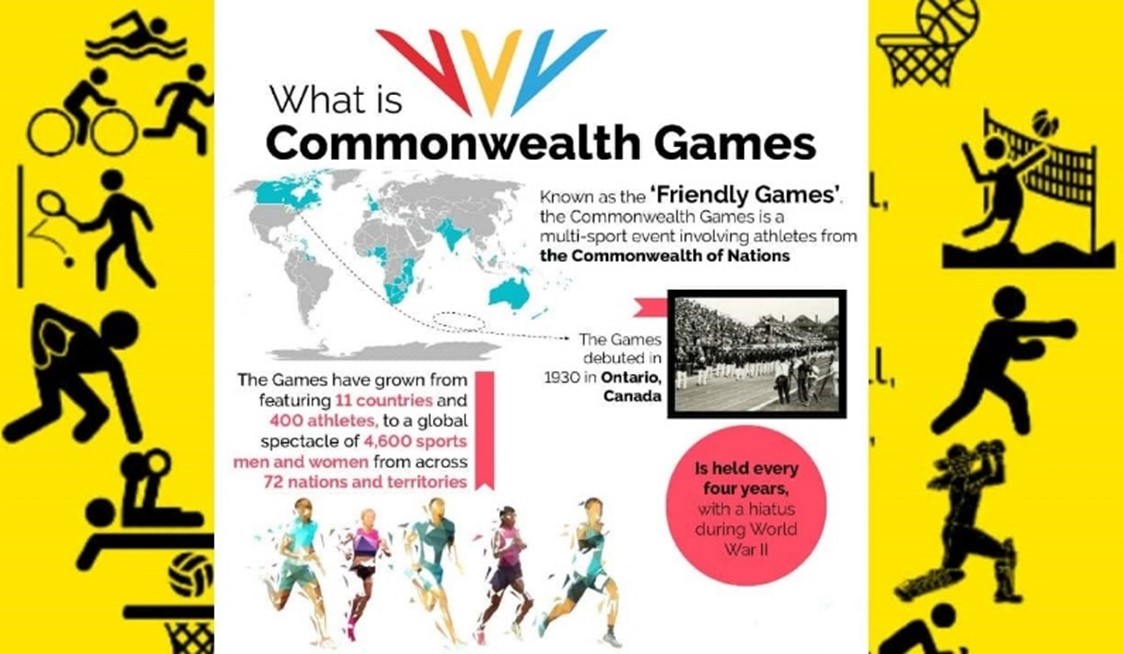
Legislative Highlights:
- 222 Bills were introduced, with 165 passed by the House, and 71% referred to Parliamentary Committees.
- Key laws passed included the Right to Education, Land Acquisition, Food Security, Civil Liability for Nuclear Damage Bills, and the Lokpal Bill.
- India concluded several free trade agreements under Manmohan Singh’s government.
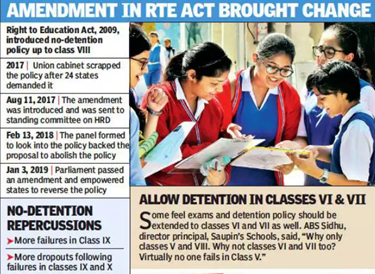
Economic Challenges:
- Despite economic growth, rising prices, faltering growth, weakening currency, and a burgeoning fiscal deficit hampered UPA’s ability to manage inflation and create jobs.
- UPA’s political troubles were attributed to its inability to tackle the consequences of accelerated economic growth.
Dissolution:
- The 15th Lok Sabha was dissolved on May 18, 2014.
- The Congress-led UPA retained power, but the government crumbled under the weight of economic slowdown and corruption scandals.
16th Lok Sabha 2014-2019
- Winning party: Bharatiya Janata Party (BJP) led National Democratic Alliance (NDA)
- Prime Minister: Narendra Modi
- Term: May 26, 2014 - May 23, 2019
- Leader of the Opposition: Due to the BJP’s significant majority and no single opposition party meeting the 10% seat criterion, there was no official Leader of the Opposition.
- Speaker: Sumitra Mahajan
- Term: June 5, 2014 -June 17, 2019
Overview:
- The Bharatiya Janata Party (BJP) led National Democratic Alliance (NDA) won a significant victory.
- The BJP capitalized leveraging Narendra Modi's charisma and leadership.
- The slogan 'acche din', promising better days, resonated with voters.
- It offered hope for change and development.
- It challenged the status quo.
- It highlighted perceived corruption within the incumbent Congress party.
- It positioned the BJP as a viable alternative for governance.
- Policies like Goods and Services Tax (GST) and demonetisation were introduced.
- Initiatives like 'Digital India' and 'Swachh Bharat Abhiyan' were launched for social development.
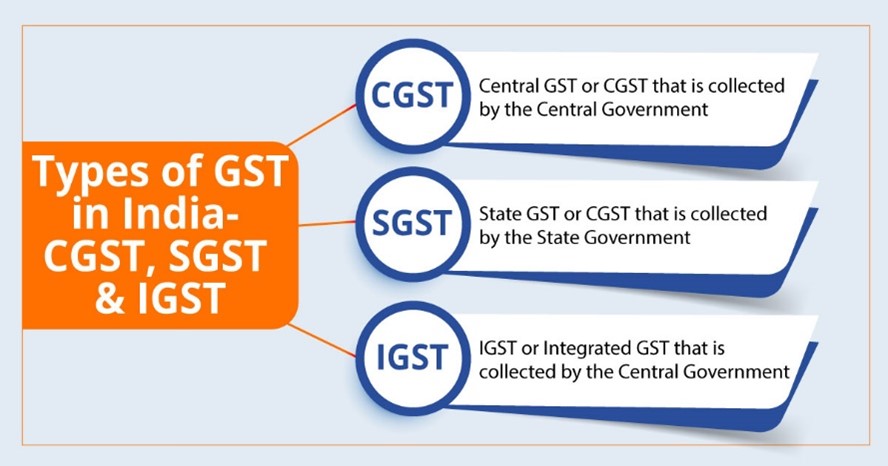
Election Dynamics and Voter Turnout:
- Elections were conducted in nine phases from April 7 to May 12, 2014.
- Voter turnout increased by 8.25%, reaching 66.4%.
- The introduction of Electronic Voting Machines (EVMs) with the 'None of the Above' (NOTA) option was notable.
Historic Victory and Parliamentary Activity:
- The BJP secured 282 seats, the first non-Congress party to attain a clear majority.
- Key legislations passed included the Triple Talaq Bill and the Citizenship Bill.
Legislative and Policy Reforms:
- Legislation such as the Aadhaar Act was passed as a Money Bill to bypass Rajya Sabha scrutiny.
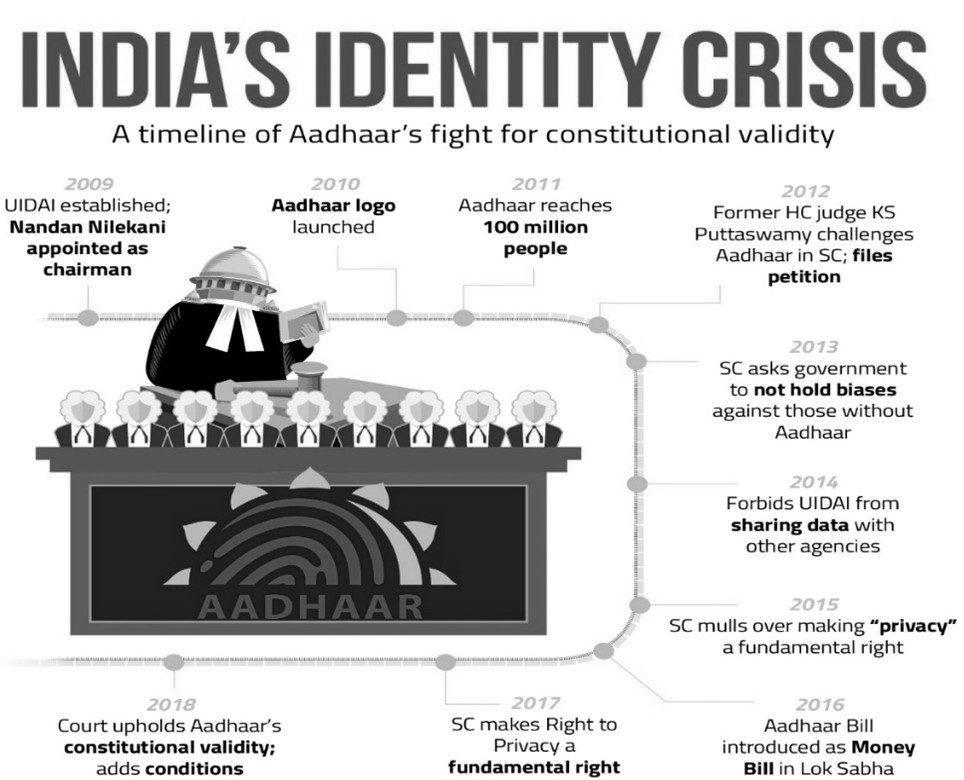
- The electoral bond scheme was introduced in the 2017 Union Budget.
- The government's foreign policy emphasized 'Act East' and 'Neighbourhood First' policies.
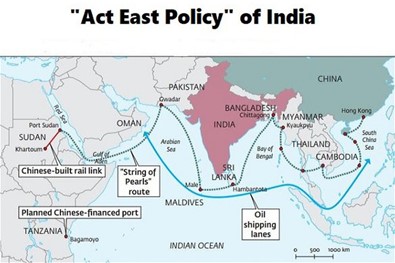
Economic Reforms and Social Issues:
- The government introduced economic reforms, digital initiatives, and social welfare policies.
- Women's education, employment, and safety were highlighted, despite India's ranking among the world's most dangerous countries for women in 2018.
Challenges and Criticisms:
- India's performance on humanitarian and democracy indices declined.
- Caste-based violence and sectarianism towards religious minorities increased.
Dissolution:
- The 16th Lok Sabha was dissolved on May 25, 2019, marking the end of Narendra Modi's first term as Prime Minister.
17th Lok Sabha 2019-2024
- Winning party: Bharatiya Janata Party (BJP) led National Democratic Alliance (NDA)
- Prime Minister: Narendra Modi
- Term in office: May 23, 2019 - Present
- Leader of the Opposition: Indian National Congress was the largest Opposition party but did not meet the 10% criterion.
- Speaker: Om Birla
- Term in Lok Sabha: June 19, 2019 – Present
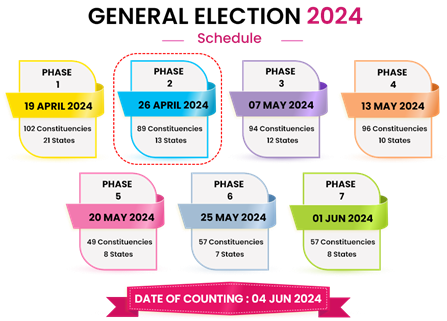
Overview:
- Largest-ever election was conducted in the world.
- Polls was held in 543 constituencies in seven phases between April 11 and May 23.
- Voter turnout reached its highest ever at 67.40%, with significant participation from women voters.
- The highest count of contesting female candidates was 726, with 78 elected as members.
- Introduction of the 'None of the Above' (NOTA) option in 2014, which secured 1.06% of votes, with the highest from Bihar's Gopalganj.
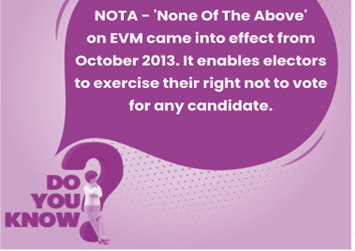
Composition and functioning of Lok Sabha:
- Average annual sitting of the 17th Lok Sabha was 55 days, less than half of the average of the first Lok Sabha.
- 58% of Bills passed within two weeks of introduction.
- The J&K Reorganisation Bill, 2019, and the Women’s Reservation Bill, 2023, were passed within two days of introduction.
- Parliament passed the three new criminal laws, replacing the Indian Penal Code, Code of Criminal Procedure, and the Indian Evidence Act.
- Women’s Reservation Bill passed after 27 years since its introduction, linked to a delimitation exercise frozen till 2026.
- The Muslim Women (Protection of Rights on Marriage) Bill introduced in 2019 banned instant triple talaq.
- It also made the practice a criminal offence.
- Lok Sabha debated issues like the handling of COVID-19 pandemic, migrant exodus, India’s response to climate change-induced hazards.
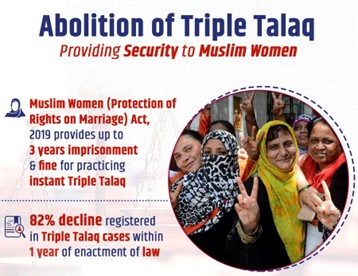
Parliamentary Proceedings and Records:
- Maximum number of suspensions of Opposition members in a single session.
- History repeated with a security breach in the Lok Sabha on December 13, 2023.
- This was coincided with the 22nd anniversary of the terror attack on the Indian Parliament.
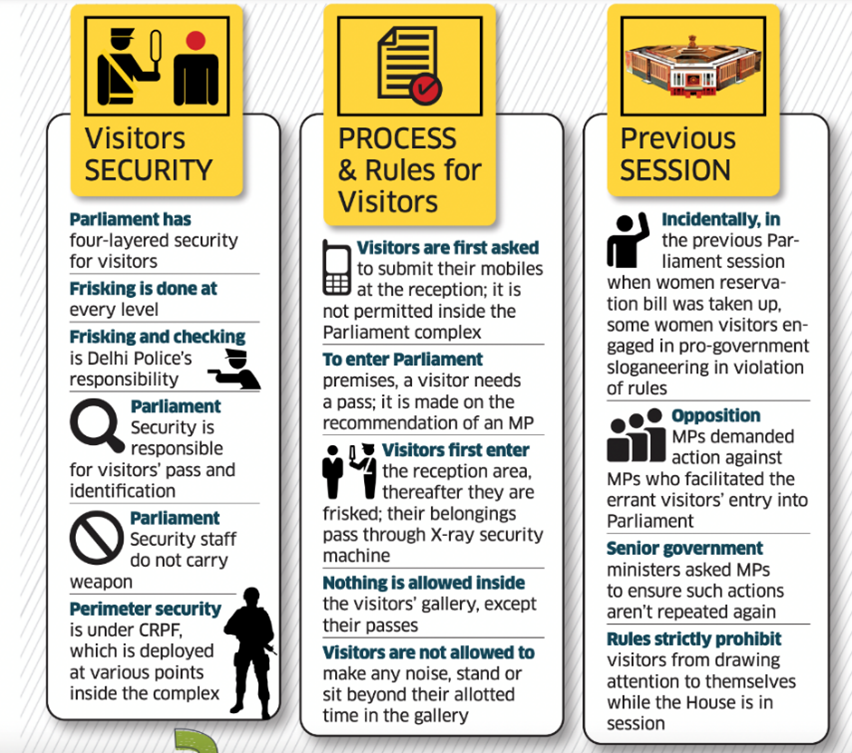
Government Policies and Actions:
- Abrogation of the special status to Jammu and Kashmir under Article 370 of the Constitution.
- India-China tensions have significantly impacted diplomatic relations between the two countries.
- Clashes in the Galwan Valley and Yangtse area in Tawang region have raised concerns about regional stability.
- Rollback of the contentious three farm laws in 2021 after unprecedented farmer protests.
- Ethnic violence in Manipur in May 2023.
- Communal clashes triggered by the Citizenship Amendment Act in northeast Delhi in 2020.
- Participation in the G-20 summit and the Shanghai Cooperation Organisation in 2023.
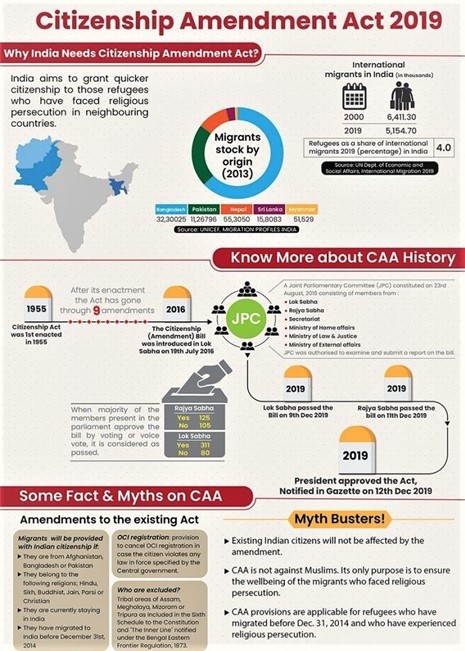
Global and Domestic Challenges:
- Balancing foreign policy involves managing alliances with the U.S. and Europe while maintaining relations with Russia.
- Unrest persists, with protests against the Citizenship Amendment Act and the farmers' grievances.
Future Outlook:
- India is participating in the 18th General Election which is being held from April 19 to June 1.
- Narendra Modi-led BJP government aims to consolidate power amid challenges related to national security, COVID-19 pandemic, farmers’ unrest, communal clashes, CAA protests, and the abrogation of Article 370.
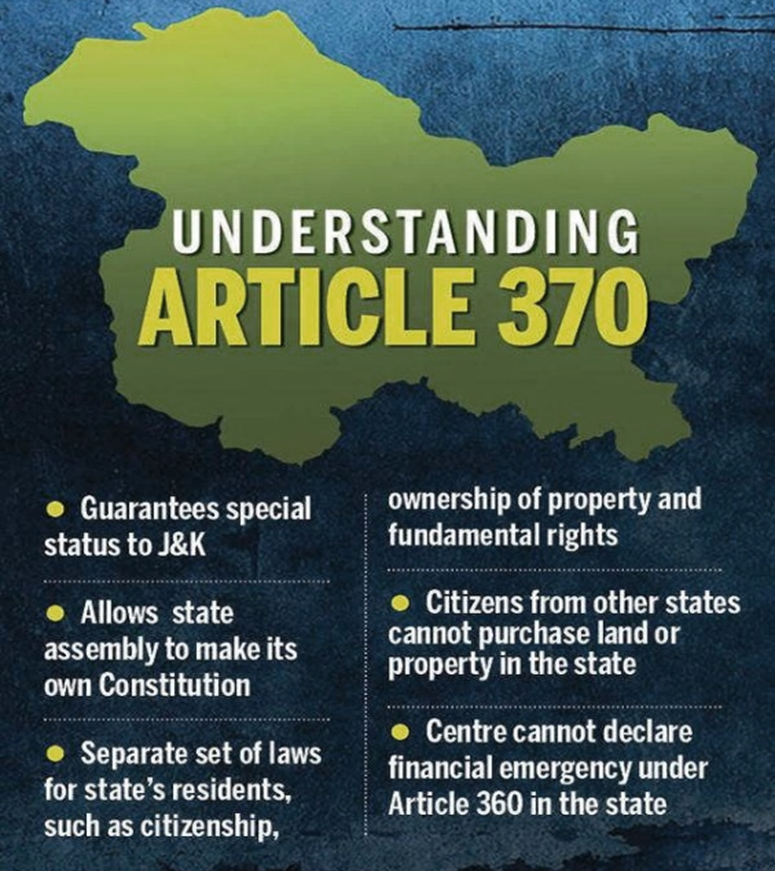
Committees related to electoral reforms:
- The various committees and commissions which have examined our electoral system, election machinery as well as election process and suggested reforms are mentioned here.
- Joint Parliamentary Committee on Amendments to Election Laws (1971–72).
- Tarkunde Committee was appointed in 1974 by Jaya Prakash Narayan (JP) during his “Total Revolution” movement.
- This unofficial committee submitted its report in 1975.
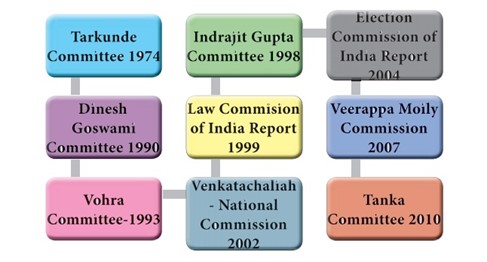
- Dinesh Goswami Committee on Electoral Reforms (1990)
- Vohra Committee on the Nexus between Crime and Politics (1993)
- Election Commission of India Recommendations on Electoral Reforms (1998).
- Indrajit Gupta Committee on State Funding of Elections (1998)
- Law Commission of India 170th Report on Reform of the Electoral Laws (1999)
- National Commission to Review the Working of the Constitution (2000–2002).
- It was headed by M.N. Venkatachaliah.
- Election Commission of India Report on Proposed Electoral Reforms (2004).
- Second Administrative Reforms Commission of India Report on Ethics in Governance (2007).
- It was headed by Veerappa Moily.
- Tankha Committee (Core Committee) was appointed in 2010 to look into the whole gamut of the election laws and electoral reforms.
- J.S. Verma Committee Report on Amendments to Criminal Law (2013).
- Law Commission of India 244th Report on Electoral Disqualifications (2014).
- Law Commission of India 255th Report on Electoral Reforms (2015).
Leave a Reply
Your Comment is awaiting moderation.


